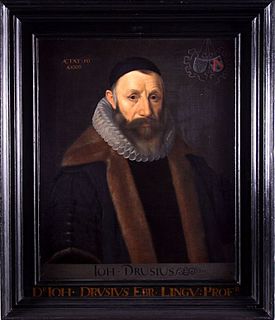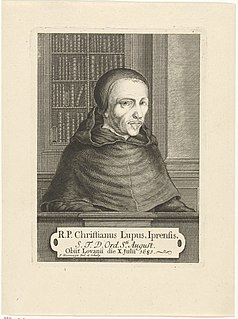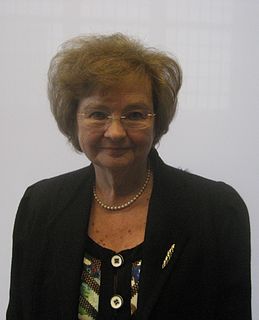 W
WJohannes van den Driesche [or Drusius] was a Flemish Protestant divine, distinguished specially as an Orientalist, Christian Hebraist and exegete.
 W
WFranciscus Haraeus, , was a theologian, historian, and cartographer from the Low Countries. He is best known for his history of the origins of the Dutch Revolt, written from a Catholic perspective but without polemical bias. He was one of the first cartographers to make thematic maps and globes.
 W
WCornelius Hazart was a Flemish Jesuit priest, controversialist, orator and writer of polemical history.
 W
WCornelis Kiliaan, was a 16th-century lexicographer, linguist, translator and poet of the Southern Netherlands.
 W
WChristian Lupus was a historian.
 W
WEmanuel van Meteren or Meteeren was a Flemish historian and Consul for "the Traders of the Low Countries" in London. He was born in Antwerp, the son of Sir Jacobus van Meteren, Dutch financier and publisher of early English versions of the Bible, and Ottilia Ortellius, of the famous Ortellius family of mapmakers, and nephew of the cartographer Abraham Ortelius.
 W
WAntonius Sanderus was a Flemish Catholic cleric and historian.
 W
WAndries Maurice Jean Marie Baron Van den Abeele is a Belgian historian and historical preservationist and former entrepreneur, politician and employers' organization chairman.
 W
WFrans Jozef Peter van den Branden was a Belgian writer, most notable for co-authoring Biographisch woordenboek der Noord- en Zuidnederlandsche letterkunde with Johannes Godefridus Frederiks, a biographical dictionary of writers from the Netherlands and Southern Netherlands.
 W
WEls, Baroness Witte is a Belgian historian. She was professor at the Vrije Universiteit Brussel and honorary rector of the university. Els Witte was the first female rector of a Belgian university. She was a member of the Coudenberg group, a Belgian federalist think tank.